President Donald Trump’s tariffs are unpopular and expected to raise costs for Americans, but he’s trying his best to message them in a positive light. When his proposed new tariffs on foreign goods go into effect on Wednesday, he’s calling it “liberation day.”
“We have ‘liberation day,‘” Trump said last week. “Many countries have taken advantage of us, the likes of which nobody even thought was possible for many, many decades.”
Trump has long been one for hyperbole, and when it comes to trade, he’s not holding back, calling the word tariff “the most beautiful word in the dictionary.” But the choice of “liberation day” to describe tariffs is a true misnomer.
In Europe, Liberation Day is observed by countries in celebration of the liberation from Nazi Germany. For Trump, he simply uses the phrase to describe a day on which he enacts his agenda. Already, Trump called his 2025 Inauguration in January “liberation day” during his speech, and he’s repeating the phrase to apply to tariffs hitting Wednesday.
How to make a political phrase stick
For words and phrases to take hold, both inside and outside of politics, they must meet the FUDGE test, according to the mnemonic device devised by linguist and Predicting New Words author Allan Metcalf. He wrote that new words need to meet a threshold for frequency, unobtrusiveness, diversity, generating new forms and meanings, and endurance in order to take hold. In other words, they need to be simple to pick up, used a lot, and able to be used flexibly across different groups and in different ways.
Trump is a master of bumper sticker-style slogans and political rhetoric, repeating straightforward, memorable phrases to explain his political agenda that becomes widely used, like “America first” and “drain the swamp.” Perhaps the best example is his already tired campaign slogan, “Make America Great Again,” which he cribbed from President Ronald Reagan. That became so ubiquitous in Trump’s rhetoric that it spawned an acronym and inspired spin-offs, like “Make America Healthy Again.”
Whether “liberation day” can similarly take hold remains to be seen. For Daniel Rogers, a Princeton University history professor who’s studied political rhetoric, the phrase is a distraction tactic.
“Changing the subject has always been one of Trump’s favorite tactics,” Rogers tells Fast Company. “Don’t engage with those who want to know on whom the cost of tariffs is going to fall, or what steep new tariffs will mean for the cost of living. Get people to believe that tariffs will free the nation from the oppressive trade policies of the commercial enemies that surround it. Get them to think that there’s a ‘war’ going on, and that tariff is another, beautiful word for ‘victory.‘”
Whether voters outside Trump’s base ever find his trade-war rhetoric convincing seems unlikely. A majority of U.S. adults (55%) believe the Trump administration is focusing too much on tariffs and 64% think it’s not doing enough to lower prices, according to a CBS News/YouGov poll released Sunday. It’s not as if Americans squeezed by years of post-pandemic inflation will greet as “liberators” the higher costs that tariffs will add to cars, housing, food, and other regularly purchased goods.




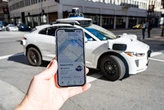

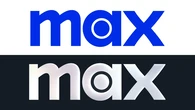
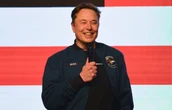
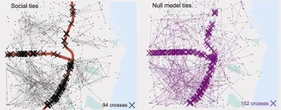
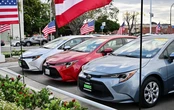
No comments